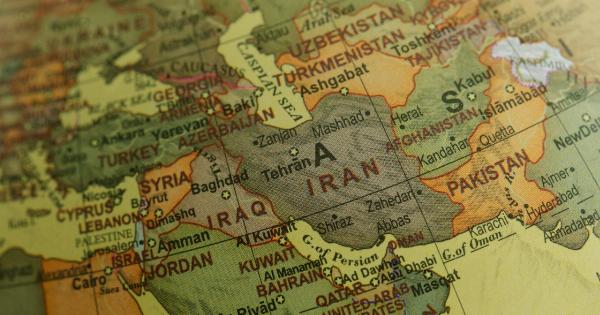In recent years, there has been a growing debate surrounding the correlation between political ideologies and personal happiness.
While happiness is a subjective measure that can vary greatly from one individual to another, it is intriguing to explore whether conservative citizens in developed nations experience higher levels of happiness compared to their liberal counterparts. This hypothesis gains significance as it examines the impact of political beliefs on personal well-being, shedding light on potentially different sources of happiness across the political spectrum.
The conservative mindset and happiness
Conservatism is a political ideology that emphasizes traditional values, limited government intervention, and a focus on personal responsibility.
These core tenets shape the conservative mindset, which in turn may contribute to higher levels of happiness among conservative citizens in developed nations.
One of the key reasons why conservatives may experience higher levels of happiness is their emphasis on personal responsibility and self-reliance. Conservatives believe in the power of individual agency and accountability for one’s own actions.
This ideology fosters a sense of control and empowerment, which can positively impact happiness levels. When individuals feel empowered and in control of their own lives, they are more likely to experience a greater sense of purpose and satisfaction.
Moreover, conservatives often prioritize traditional values and social cohesion. These values provide a sense of stability and security, which are important factors in cultivating happiness.
By emphasizing the importance of family, community, and cultural norms, conservatives may find greater fulfillment in their relationships and social networks.
Additionally, limited government intervention, another pillar of conservatism, can contribute to feelings of happiness.
When individuals perceive that they have more control over their own resources and decision-making processes, they may experience a greater sense of autonomy and freedom. This belief in limited government interference resonates with the conservative ideology and may positively impact happiness levels.
Conservatism, economic prosperity, and happiness
Developed nations are often characterized by higher levels of economic prosperity, which can play a significant role in overall happiness levels.
It is worth exploring whether the correlation between conservatism and happiness can be attributed to the economic advantages typically associated with developed nations.
Conservative economic policies, such as free markets and limited government intervention, have historically been linked to economic growth and prosperity.
These policies encourage entrepreneurship, innovation, and individual initiative, which contribute to a thriving economy. In developed nations, where conservative economic principles are more prevalent, citizens may benefit from the resulting economic stability and opportunities.
Economic prosperity can have a substantial impact on happiness levels. Studies have consistently shown that individuals living in economically prosperous nations tend to experience higher levels of subjective well-being.
The availability of resources, access to quality healthcare and education, and overall higher standards of living contribute to a greater sense of happiness and life satisfaction.
In developed nations with a conservative leaning, citizens may reap the financial rewards of conservative economic policies. This economic prosperity can, in turn, positively influence their overall happiness levels.
The ability to meet basic needs, enjoy a comfortable standard of living, and have access to a wide range of opportunities contributes to a sense of contentment.
Exploring happiness across the political spectrum
While conservative citizens in developed nations may experience higher levels of happiness due to the factors discussed above, it is essential to appreciate that happiness is a multifaceted and complex construct.
Political ideology is only one of the many factors that influence individual well-being.
It is crucial to recognize that individuals across the political spectrum can experience happiness, albeit through different sources. Liberal citizens, for instance, may place greater importance on social justice, equality, and personal freedoms.
Their sources of happiness may stem from collective efforts towards societal progress and the promotion of inclusivity.
Factors such as personal relationships, mental and physical health, socioeconomic status, and individual circumstances also significantly impact happiness levels.
Therefore, while political ideology may play a role in shaping happiness, it is essential to consider the broader context in which individuals live and experience well-being.
Potential criticisms and limitations
As with any study or analysis, it is important to acknowledge potential criticisms and limitations. The relationship between conservatism and happiness is complex and multifaceted, making it difficult to establish a clear cause-and-effect relationship.
One could argue that individual happiness is influenced by a combination of political ideology, societal factors, personal beliefs, and cultural nuances.
It is challenging to isolate the impact of conservatism alone on happiness levels, as individuals are influenced by a plethora of interconnected variables.
Additionally, the definition and measurement of happiness can vary across studies and cultures. Subjective well-being is a deeply personal experience that may be influenced by cultural norms, social expectations, and personal values.
Therefore, it is important to interpret and compare research findings with caution.
The importance of well-rounded policy approaches
The exploration of happiness levels across different political ideologies provides valuable insights into the diverse factors that contribute to individual well-being.
Understanding the potential sources of happiness for conservative citizens in developed nations can inform policymakers and researchers in their quest to create environments conducive to overall happiness.
It is crucial to recognize that different political ideologies have unique strengths and weaknesses when it comes to promoting happiness.
A holistic approach that combines the strengths of conservative values, such as personal responsibility and individual agency, with the benefits of liberal values, such as social justice and equality, can contribute to a well-rounded policy framework.
Ultimately, the goal should be to create societies that prioritize the well-being and happiness of all citizens, regardless of their political beliefs.
By recognizing the diverse sources of happiness and adopting comprehensive policy approaches, developed nations can strive to create a more inclusive, prosperous, and happy society for all.
Conclusion
The relationship between political ideology and personal happiness is a complex and intricate topic.
While conservative citizens in developed nations may experience higher levels of happiness, it is crucial to understand that happiness is influenced by various interrelated factors. Political ideology alone cannot determine an individual’s overall well-being.
Conservatism fosters personal responsibility, self-reliance, and value in traditional norms, which can positively impact happiness levels.
Economic prosperity, often associated with conservative economic principles, can also contribute to higher levels of happiness in developed nations.
However, it is important to approach the topic with nuance, recognizing the unique sources of happiness across the political spectrum. Individual circumstances, relationships, and socioeconomic factors also significantly influence happiness levels.
By understanding the various factors that contribute to happiness and adopting well-rounded policy approaches, societies can strive to create environments that prioritize the well-being of all citizens, regardless of their political beliefs.






























